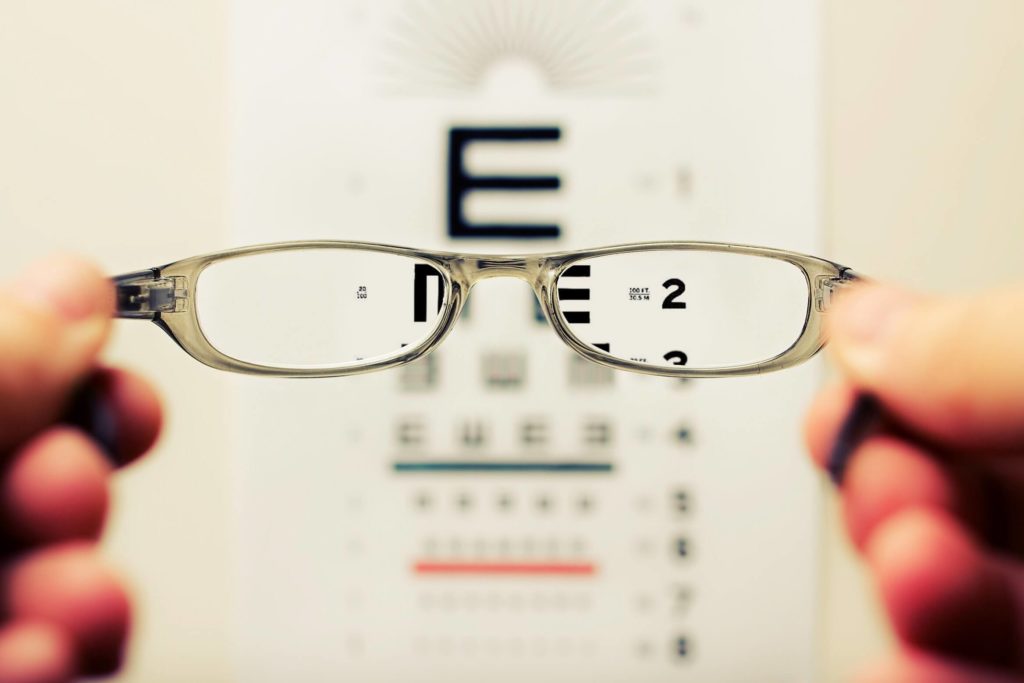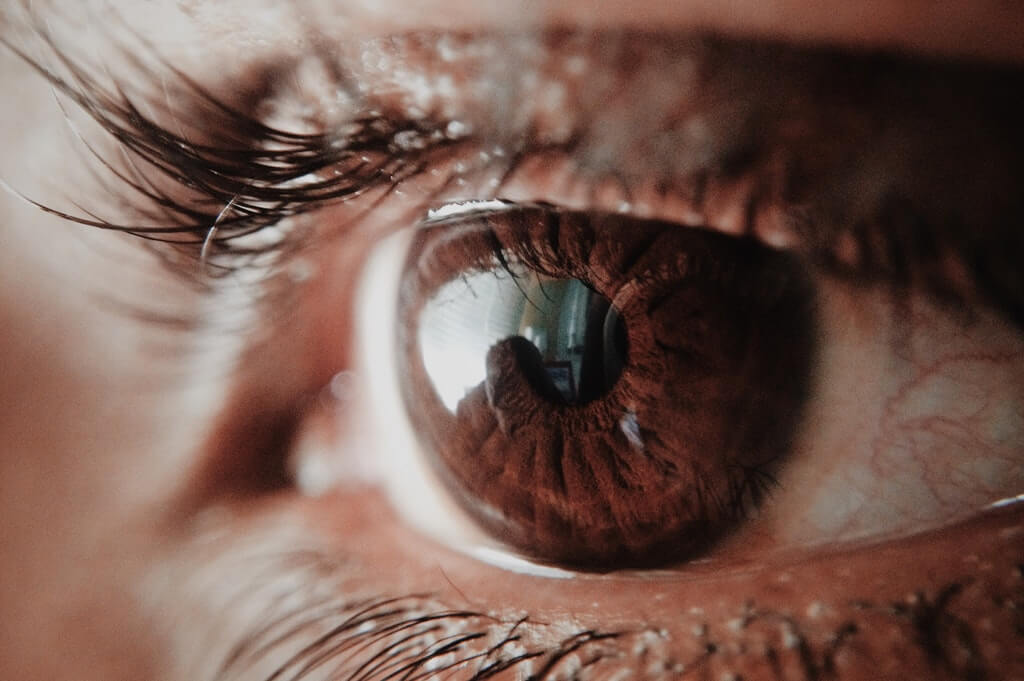Eye safety isn’t something families actively think about unless there’s already vision problems among their members. However, eye health is more vital than it seems because seeing is one of the ways we appreciate the world. March is Workplace Eye Safety Month, wherein we spread awareness about the frequency of eye injuries in the workplace, which can also happen at home if the family is not aware of eye safety.The best way to achieve eye safety at home is to keep the whole body healthy through good habits. Your family’s overall health will inevitably translate to your eye health. Even the amount of blood in your sugar can affect your vision. As a parent, you should strive to keep your family’s health in top shape and encourage good habits among your family members, especially with the children.
1. Eat healthily
Eating healthy food can protect your eyes from diseases. Certain nutrients like lutein, zinc, beta carotene, and vitamin C are proven to keep your eyes healthy. Most of these foods are vegetables that aren’t generally fun choices for kids. You could look up fun ways to serve veggies to your children to encourage them to eat their greens and make it a habit.
2. Avoid sweets
 Photo courtesy of Caio Resende via Pexels
Photo courtesy of Caio Resende via Pexels
Another thing you should consider about your family’s diet is to avoid sweets. Sweet food items like candy or chocolate increase your blood sugar, thus can lead to diabetes that increases the likelihood of getting vision problems. You heard it, if eating sweets is not managed properly, diabetes can lead to diabetic retinopathy, which at first causes only minor vision problems, but can lead to blindness in the long run.This can be a hard bargain for the young ones with the sweet tooth, but you need to start early in educating them about what is good and what is bad for their health. Supplement the things they learn in schools like the food pyramid or the Go, Grow, and Glow food groups with actual healthy food on the table and avoiding sugary snacks that do more harm than good.
3. Hydrate
One common eye problem is dry eyes. This happens when tears evaporate fast or if you have trouble forming tears. Tears aren’t only present when we cry. Eyes are always coated with a tear film, which is vital to enable clear vision and fight off bacteria. Dry eyes can be caused by dehydration. It can also cause eye strain, which can lead to dizziness, blurred vision, and headaches. What can solve both of these common eye problems is to drink a lot of water regularly to flush out the salts in the body and hydrate the body to avoid dry eyes and eye strain.Make it a habit for the family to drink their eight glasses a day. For every meal they have at home, encourage them to pair it with a tall glass. For the kids, have them bring a tumbler that they can fill up with the water fountains at school.
4. Get some exercise
 Photo courtesy of Pixabay via Pexels
Photo courtesy of Pixabay via Pexels
When you get active, your eyes reap the benefits too. When you exercise regularly, you fight off high cholesterol and high blood pressure. Eye health is boosted when you ward off these health problems and can help you avoid severe eye complications like glaucoma and macular degeneration.Exercise is also an excellent way to bond with your family while being healthy. You don’t need to sign up for a fancy gym or sports club if you don’t have the time. You can always just walk around the condo block with your kids, which has surprising benefits itself.
5. Sleep well
 Photo courtesy of Burst via Pexels
Photo courtesy of Burst via Pexels
It’s no surprise that getting quality rest can contribute to eye safety at home. Getting enough sleep helps all bodily functions, especially your sight. You might have noticed that when you lose sleep, your eyes get tired easily and your vision gets blurry. Sleep-deprived eyes can lead to dry eyes and eye strain. Working adults need about 8 hours of rest at night to avoid the effects of sleep deprivation, while kids need nine hours or more. Be sure you get as much sleep as you can to protect your eyes. You can implement a strict lights out the protocol in your home, or even your office, which means all lights are out by a specific time, including phone or computer screens.
6. Quit smoking
 Photo courtesy of Ann H via Pexels
Photo courtesy of Ann H via Pexels
Smoking is not only a bad habit for your lungs, but it can also damage your eyes. Studies show that smoking can lead to sight complications like age-related macular degeneration, dry eye, cataract, glaucoma, and diabetic retinopathy.Quitting smoking may be easier said than done, but not only are you doing yourself a favor by keeping your body clean, you’ll also be protecting your children from diseases brought upon by secondhand smoke.
7. Look into your family history
 Photo courtesy of Pixabay via Pexels
Photo courtesy of Pixabay via Pexels
Part of being in shape is looking out for potential genetic diseases you might possess. Ask your older relatives and in-laws whether your family has a history of eye complications, diabetes, or high blood pressure.If you have a history of having these diseases, optimize your lifestyle to lessen the likelihood of these complications affecting your children and yourself.
8. Schedule regular checkups with your eye doctor
 Photo courtesy of David Travis via Unsplash
Photo courtesy of David Travis via Unsplash
Even if you feel like there’s nothing wrong with you and your family members’ eyesight, you should still schedule regular checkups to keep track of your eye health. Regular sessions with optometrists will help you determine whether your vision is deteriorating and if you’ll need glasses or medicine to improve it.Additionally, chronic eye exams can also determine other underlying diseases that can manifest through vision problems.
9. Take care of your glasses and contacts
 Photo courtesy of Casterly Stock via Pexels
Photo courtesy of Casterly Stock via Pexels
Part of eye safety is taking good care of your glasses or contacts. There are proper ways of storing and cleaning them. If you and your family aren’t handling these properly, this can lead to eye infections.Using contacts can be tricky, even for adults. If your children are using these, make sure they’re aware of the proper way to disinfect their contacts, and that the children don’t sleep while wearing your contacts.
10. Wear protective eyewear
 Photo courtesy of Edneil Jocusol via Pexels
Photo courtesy of Edneil Jocusol via Pexels
Wearing eye gear can seem a bit too much at first, but even walking down the street with the sun in your eyes can damage your vision. The sun’s ultraviolet rays can cause problems if you don’t wear proper sunglasses. Be sure that the ones you pick aren’t just for show, and can protect your family against sun rays. Whenever you’re swimming, be sure you’ve got goggles on because the sea salt and pool chlorine can hurt your eyes, especially for those who wear contacts. You should also wear protective eye gear when you’re renovating, gardening, or cleaning, especially if you’re handling toxic chemicals or sharp objects to prevent eye injuries.
11. Clean the parts around your eyes thoroughly
 Photo courtesy of Subin via Pexels
Photo courtesy of Subin via Pexels
Foreign objects or too much oil surrounding the eye can cause problems like infections or styes. When you’re washing up in the morning or before going to bed, make sure that you and your family take time to clean your eyes carefully. You can use mild baby soap to clean the edges of your eyelids. Make sure you assist the younger children so as not to have accidents.
12. Keep your hands off your eyes
 Photo courtesy of Craig Adderley via Pexels
Photo courtesy of Craig Adderley via Pexels
Your hands come into contact with a lot of bacteria and germs because they’re always touching things. Especially for young children who experience the world, mainly by touch, unwanted microorganisms that harbor diseases can attach to their hands. Also, when you touch your eyes without cleaning your hands, there’s a chance you’re transmitting bacteria or allergens there.Make sure you always wash your hands, especially before you eat. Avoid rubbing your eyes altogether, because besides transmitting dirt and germs, you can damage your eye if you put too much pressure on it. This is especially common for people who already have underlying eye complications.
13. Limit your screen time
Gadgets like phones, tablets, and laptops are designed to be addictive. If ever you find you and your family staring into your screens for hours at a time, it’s not your fault. But using your gadgets for long periods can endanger your eye safety because your screens emit blue light that harms your eyes.
You can teach your family members a little trick called the 20-20-20 rule, which is a way you can get your eyes to rest. Every 20 minutes, look at something that’s at least 20 feet away for 20 seconds. Learn how to set a screen timeout every night, which can be at least an hour before bedtime. This will help your body settle down and get ready to rest.
14. Lower brightness
 Photo courtesy of Porapak Apichodilok via Pexels
Photo courtesy of Porapak Apichodilok via Pexels
You can also encourage everyone to keep their brightness down so as not to strain their eyes while looking at their screens. This is to keep the exposure of blue light to the minimum. Ideally, your phone’s brightness should be equal to your ambient light. A screen too dim in a bright place can easily damage your eyes too as much as a bright screen can in a dark setting.You can also have your family’s phones set to eye assist color, wherein you can choose to have your phones not emit blue light. The hue of your screen will be a little yellow, but it now minimizes the damage your eyes are taking.
15. Regulate distance from screens
 Photo courtesy of freestocks.org via Pexels
Photo courtesy of freestocks.org via Pexels
Another way you can keep your eyes safe is to keep your distance from your phones. Teach your family how to position their gadgets in a way that minimizes eye strain. The usual range is eight inches, but that isn’t enough. Try holding your devices 18 inches away from your eyes a few times to get your eyes their well-deserved break.It’s easy to take your eyesight for granted if you’re not having trouble with it. But eye safety can easily be compromised if you’re not careful enough, especially if you have young children. Make sure that you build these habits into your daily routines and that you teach your kids the importance of safety not only of their eyesight but of their whole body.


